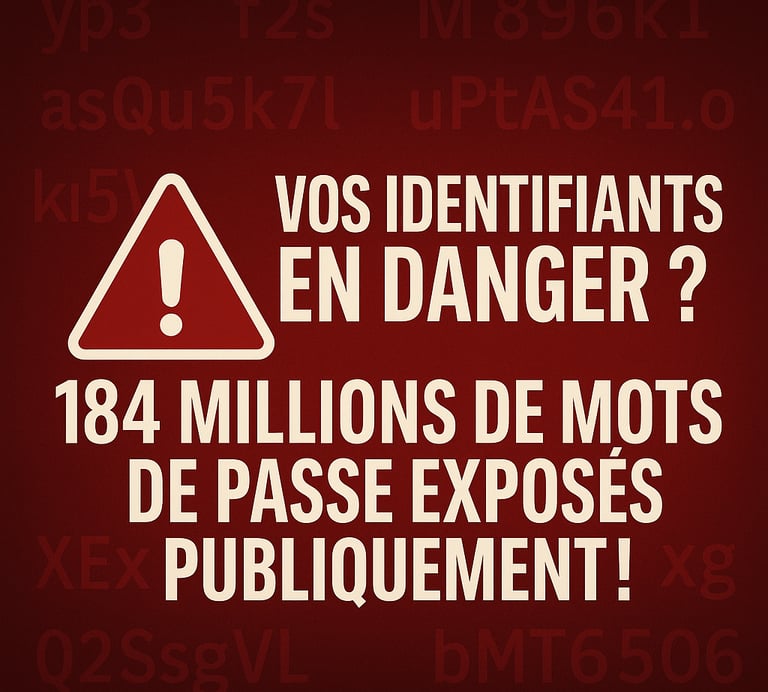Are your Data at risk? 184 Million passwords publicly EXPOSED!
A massive data leak reveals 184 million passwords tied to Google, Facebook, and Microsoft. Check if your accounts are affected and how to stay safe.
EN - SECURITY & PRIVACY
Quebec Test
5/27/20251 min read


In May 2025, cybersecurity researcher Jeremiah Fowler uncovered a 47 GB unprotected database containing over 184 million plain-text email/password pairs. The leaked data involved accounts from popular services such as Google, Meta (Facebook), Apple, and even government domains from 29 countries.
Due to the lack of metadata, it remains unclear who compiled the database, but experts believe it could have been built using malware or phishing tools by cybercriminals or researchers.
A Troubling History of Data Breaches Among Tech Giants
This isn't the first time major tech companies have faced critical security incidents:
Facebook (2019): Hundreds of millions of user passwords were stored in plain text, accessible internally by thousands of employees.
🔗 krebsonsecurity.comGoogle (2014): Nearly 5 million Gmail passwords were leaked online. The exact origin of the breach remains unknown.
🔗 firewalltimes.comMicrosoft (2024): Russian hackers breached Microsoft's network by exploiting a weak test account password, gaining access to sensitive emails and internal documents.
🔗 virtru.com | msrc.microsoft.com
🎥 Recommended Videos
To better understand password security and how to protect yourself, watch these two must-see videos:
🔎 Your Personal Info on the Dark Web? Google Knows
🔐 How to Create a Strong Password
How to Strengthen Your Online Security
In response to this threat, adopt these best practices:
Use unique, complex passwords for every account.
Enable two-factor authentication (2FA) whenever available.
Regularly update your passwords—especially after breaches.
Never reuse login credentials across websites.
Consider using a password manager to securely store your credentials.
🧠 Final Thought
This massive leak serves as another wake-up call for both users and tech companies. Stay informed, stay alert, and apply good security hygiene to protect your sensitive data.


